Asia Cooperation Dialogue, 17th Foreign Ministers’ Meeting: “The New Normal and Safe and Healthy Tourism”
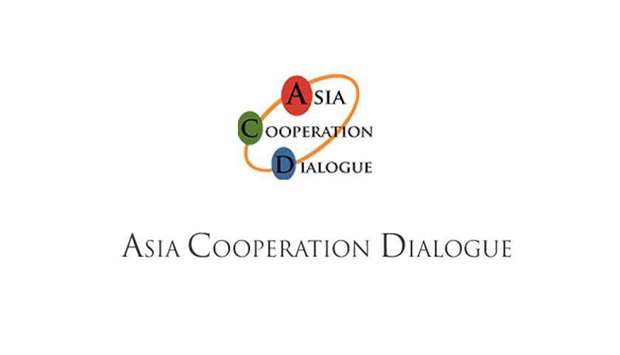
Op/Ed by Chris Devonshire-Ellis
- 34 Asian Foreign Ministers and Representatives discuss Asian integration
- Focus on science, education, technology, and integration to deal with regional and global challenges
- Renewed focus on trade and cross border cooperations
The Asia Cooperation Dialogue (ACD) held its 17th Foreign Ministers meeting on Thursday, January 21st, hosted virtually by Turkish Foreign Minister Mevlut Cavusoglu. The ACD was created in 2002 to promote Asian cooperation at a continental level and to help integrate separate regional organizations such as ASEAN, the Gulf Cooperation Council, the Eurasian Economic Union, the Shanghai Cooperation Organization and SAARC. It is the first international organization to cover the whole of Asia. The ACD secretariat is based in Kuwait.
The ACD has 34 member states, being Afghanistan, Bahrain, Bangladesh, Bhutan, Brunei, Cambodia, China, India, Indonesia, Iran, Japan, Kazakhstan, Kuwait, South Korea, Kyrgyzstan, Laos, Malaysia, Mongolia, Myanmar, Nepal, Oman, Pakistan, Philippines, Qatar, Russia, Saudi Arabia, Singapore, Sri Lanka, Tajikistan, Thailand, Turkey, United Arab Emirates, Uzbekistan, and Vietnam.
We provide some of the speech highlights as follows:
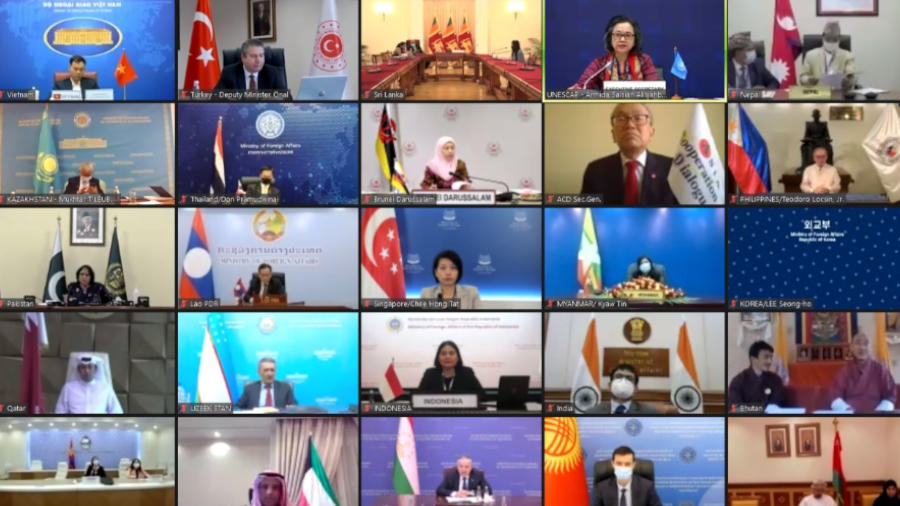
Keynote Speech by Armida Salsiah Alisjahbana: Executive Secretary of the United Nations Economic and Social Commission for Asia and Pacific.
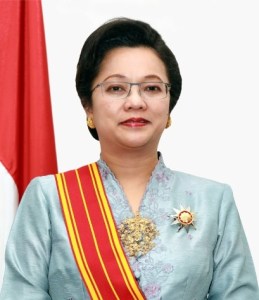 “Ladies and gentlemen,
“Ladies and gentlemen,
The membership of the Asia Cooperation Dialogue (ACD) shares common development challenges and opportunities in their advancement towards the 2030 Agenda for Sustainable Development. Over the past decades, ACD member countries have invested significantly to raise their socio-economic development and technological opportunities.
Yet, the COVID-19 pandemic has severely reduced economic growth prospects during 2020, leading to a sharp fall in jobs, tourism revenues, and trade and investment inflows. Governments are undertaking pro-active policies to address these new and emerging development and pandemic-induces crisis to adequately safeguards people’s health and well-being, while aiming to protect lives and to rebuild economies.
Today, we must work to recover better together and focus on inclusivity, resilience and sustainability in all aspects of our cooperation.
May I take this opportunity to highlight three policy priorities for your considerations:
First, let us enhance cooperation across member states in transport and trade sectors. There is a clear need for authorities to ensure stronger regional mechanisms for resilient trade recovery, and to facilitate investment flows. By strengthening freight transport policy, member States can ensure seamless flow of goods, especially for the landlocked developing countries in the ACD.
The Framework on Facilitation of Cross-border Paperless Trade in Asia and the Pacific is another significant initiative since 2012, to pursue trade digitalization and to support regional programmes. This UN treaty is now set to enter into force on 20 February 2021 after the ratification by China and Bangladesh.
ESCAP, in collaboration with ACD countries and other members in the region, is promoting smart connectivity along the Asian Highway Network and the Trans-Asian Railway Network that is supporting the development and implementation of smart transport solutions.
Second, we must emphasize greening the post-COVID-19 recovery. The Asia-Pacific region accounted for more than half of the annual increase in global CO2 emissions. Air pollution is another challenge in our region, especially across bigger cities. Member countries need to focus on climate mitigation and adaptation with particular emphasis on renewable energy, energy transition through SDG 7 roadmap.
ESCAP, together with member States, are also currently utilizing regional cooperation architecture such as Geostationary Environment Monitoring Spectrometer (GEMS) to mitigate air pollution by monitoring air quality data from space and ground networks.
We have further initiated several projects in supporting member States to develop national SDG 7 roadmaps. A region-wide energy policy solutions and power system connectivity could increase the share of renewables and energy efficiency.
Third, let us focus on increasing exchanges of best practices, knowledge and experiences across member States. By strengthening these sharing of exchanges, ACD policymakers can learn from experiences of their peers and explore mutually beneficial collaboration on areas such as connectivity, technology and related aspects of the Sustainable Development Goals.
By developing joint technical cooperation programmes, ACD Secretariat could further promote and support implementation of regional solutions-oriented projects.
ESCAP, along with the UN family in our region, is committed to working closely with ACD Secretariat, member States and stakeholders.”
Extracts From, The Speech by Mevlut Cavusoglu, Foreign Minister of Turkey
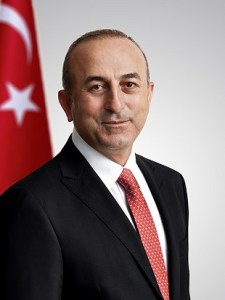
A comprehensive declaration adopted amid Thursday’s Asia Cooperation Dialogue (ACD) on future cooperation perspectives will serve as an “important roadmap,” Turkey’s foreign minister said on Thursday.
Cavusoglu said the comprehensive declaration would “lay the ground for action in the next decade under the six pillars of cooperation of the ACD” — connectivity; science, technology and innovation; development of education and human resources; food, energy and water security nexus; culture and tourism; support for comprehensive and sustainable development.
Hosting the meeting with the theme of The New Normal and Safe and Healthy Tourism, Cavusoglu said Turkey’s term as chair of the organization coincided with a historic global crisis, the novel coronavirus pandemic, which he underlined hit all societies and economies.
Held virtually due to the coronavirus outbreak across the globe, the meeting discussed the pandemic’s economic and social effects as its participants exchanged views on the ACD’s joint activities against these challenges.
In a speech, Cavusoglu underlined that countries “dependent on trade, tourism, foreign remittances, and hydrocarbons felt the effect of the pandemic, even more,” adding that the impact on the tourism sector had been particularly harsh.
“With the advent of vaccines, we all started preparing ourselves for the aftermath of COVID-19 and the new normal. It is time for reflection, the pandemic has proven that without innovative policies and solidarity we cannot win,” he said.
This is also valid for building more resilient economies and tourism sectors, Cavusoglu added.
He noted that during the pandemic, Turkey had been among the first countries to reopen for tourism. “Thanks to our timely and innovative measures, Turkey was able to host nearly 15 million visitors last year.”
Extracts From The Speech by Chinese Vice Foreign Minister Luo Zhaohui
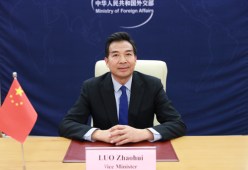
Luo Zhaohui said that Asia is our shared home, and the ACD is our carefully built platform. Next year marks the 20th anniversary of the founding of the ACD. In recent years, under the concerted efforts of Asian governments and people, the ACD has achieved remarkable progress in six pillars of cooperation on connectivity, science and technology, sustainable development, food, water, and energy security, deepened practical cooperation and institutional construction, promoted the building of an Asian community with a shared future, and enhanced the capacity of forging consensus among Asian countries.
Luo Zhaohui said the world is now facing new challenges and opportunities. Against the backdrop of the rampant COVID-19 outbreak, deep recession of the global economy and setbacks to globalization and multilateralism, unity, confidence, and cooperation are particularly crucial.
“First, we need to stay committed to cooperation. Since its founding, the ACD has remained committed to promoting trans-Asia exchanges and cooperation and building an Asian community with a shared future. Realizing regional development and revitalization is our common goal. As one of the world’s most economically vibrant regions, Asia has been an important engine for global economic growth. Last year, the ASEAN has become China’s largest trading partner, with the China-ASEAN trade volume up by 7 percent against the downward trend of the global economy. The signing of the Regional Comprehensive Economic Partnership (RCEP) has injected strong impetus for the economic recovery of the region. All of these have become an important milestone for the regional integration. When the globalization process is experiencing difficulties, we need to actively maintain the sound momentum of regionalism and regional cooperation, adhere to the established vision, and blueprint of regional economic integration and always take development as our top priority.
Second, we need to focus on anti-pandemic cooperation. Since the onset of COVID-19, the ACD member states have been supporting each other and sharing valuable experience of fight against the virus. Under the current circumstances, we need to further deepen cooperation and upgrade anti-pandemic and healthcare cooperation. We need to join hands to promote the accessibility and affordability of the vaccines, and overcome the negative impacts in poverty alleviation, food security and other fields. China advocates the building of a global community of health for all and is ready to collaborate closely with other parties to deepen cooperation in public health.
Third, we need to jointly promote economic recovery. The pandemic has accelerated the process of digital transformation. We need to promote the research, development, and application of new technologies, expand cooperation in e-commerce, 5G and smart city, promote digital transformation in Asia and explore the enhancement of digital and economic governance. We need to maintain open, unimpeded, safe, and stable industrial and supply chains, give a full play to the potential of emerging economies and markets, and nurture a more integrated “world market”. China has taken a lead in both pandemic prevention and control and economic recovery. In 2020, China’s GDP increased by 2.3 percent compared with the previous year, with an average GDP per capita of over 10,000 U.S. dollars. In the context of strict pandemic prevention, we have built “fast tracks” and “green lanes” to facilitate personnel and goods exchanges. We will continue to push the opening to a higher level and promote a deep synergy between the ACD and the Belt and Road Initiative.
Fourth, we need to tackle non-traditional security challenges. This year marks the 30th anniversary of the end of the Cold War. A tendency of constant and frequent non-traditional security threats has been observed in the past. The 1997 Asian financial crisis, the September 11 Attacks in 2001, the 2003 SARS pandemic, the 2004 Indian Ocean tsunami, and the 2008 global financial crisis have all justified the sustainable response to non-traditional security threats by multinational cooperation. The ACD member states need to continue to focus on non-traditional security challenges and improve non-traditional security cooperation.
All participating parties agreed that when the COVID-19 pandemic is still ravaging, all countries need to stay united to fight against the pandemic, strengthen macro-policy coordination, steadily promote economic recovery, ensure unimpeded and stable industrial and supply chains, facilitate personnel exchanges in an orderly manner, and explore new thoughts and new models of revitalizing tourism under the new normalcy of pandemic prevention and control. The ACD needs to play its due role, tap the potential in prioritized fields of cooperation, promote exchanges and mutual learning among member states and inject impetus to regional cooperation.”
Points From Riva Ganguly Das, India’s Foreign Ministry
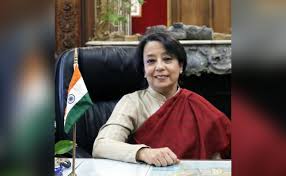
India calls for greater cooperation to eliminate terrorism in all its forms.
- Underlining that terrorism continues to pose a critical threat to global peace and security, India calls for greater cooperation to eliminate the menace in all its forms.
- India emphasizes that handling common challenges in the Indo-Pacific region, with ASEAN at its centre, require renewed coordination and cooperation.
- The Indo-Pacific Oceans Initiative (IPOI) calls for a free, open, inclusive, and rules-based Indo-Pacific region, which promotes Security and Growth for All in the Region (SAGAR).
- Even amid the ongoing pandemic, terrorism continues to pose a critical threat.
- There is need to strengthen efforts aimed at development of equitable and universal access to diagnostic tools, treatments, and vaccines to promote safe and healthy tourism.
- Vaccines from India have started reaching India’s neighborhood — Bhutan, the Maldives, Nepal, Bangladesh, Myanmar, and Seychelles — under grant assistance.
- Recognizing the strong need to revive and rebuild the tourism sector to ensure jobs as well as for the protection of cultural and natural heritage, India is focusing on tourism promotion as a part of its 3Ts strategy – trade, tourism, and technology.
Following the meeting, the ministers adopted the Ankara Declaration on future cooperation perspectives.
Summary
The ‘Cross-Border Paperless Trade’ issue is an important one, digitizing commerce and ushering in new technologies such as Fintech, and potentially also laying the groundwork for digital currencies to develop away from reliance on the US dollar, whose use is diminishing across the Asian region. Reference to Asian Highway and Rail Networks are reminders that that China is a major supplier and infrastructure builder, many of the Asian interconnectivity projects have their genesis far earlier and are part of long-term United Nations global development plans. Critics of China’s Belt & Road Initiative may wish to consider this, even though China itself is more than happy to assume credit, many of these larger infrastructure projects have far older origins than the BRI suggests.
However, that theme of connectivity was consistent, and considered a ‘key pillar’ of Asian regional cooperation. That suggests that Asia itself, inclusively rather than purely China, is set to develop as a more integrated body and take over considerable elements of global influence. How Europe, and especially the United States reacts to this is possibly the defining issue of the century. Covid-19 has illustrated that just one nation is no longer enough to manage world affairs, and the United States will face increasing pressure to give up some of its strategic advantages over time. That includes areas where it has overstepped its boundaries and created mistrust – the use of sanctions and financial institutions as weapons for American Foreign Policy are cases in point. These are now being diminished and will see Asia emerge as a third power after Europe.
But to get there, Asia needs to both increase integration and avoid regional conflicts concerning food, water, and energy, as Turkey pointed out, saying that science and technology would be the way ahead to deal with these challenges. That went hand in hand with calls for improvements in education and the standards of human rights.
The Chinese position, despite the interconnectivity aspects and the impact of the Belt and Road infrastructure projects, alluded to life beyond these larger developments and constructions, as China views much of the hard building to have been completed, or about to be. Instead, there was more emphasis on trade agreements and the soft infrastructure of opening Asia – a call to engage via market freedoms. China is now calling for the same actions as the United States did back in the 1980’s – free and open trade. Yet in contemporary times, the US has pulled out of agreements – and Biden’s potential actions over the US rejoining the TPP could yet be a defining part of what will surely only amount to a one-term Presidency.
Biden’s predecessor, Barack Obama agreed to the TPP, only to have Trump pull the US out. How Biden deals with the prospect will define US relations with Asia – interestingly no-one at the ACD seemed optimistic such a move could happen. The good news for Asia is that it has moved on and absorbed the impact of a no-deal United States. Whether that is also good for the US remains to be seen, and China’s take up of the Free Trade mantle is in current direct opposition to Washington’s thinking.
All this is creating a more resilient, integrated Asia, with platforms such as the ACD far more influential than any regional engagement the United States now has. Last week’s ACD meeting merely underlined the point – an integrated Asia is evolving to become a massive third leg of the global community, and the world’s premier economic and trade driver.
Related Reading
- New ASEAN – Belt And Report Released
- China’s Foreign Minister At The Belt & Road Forum For International Cooperation: Analysis Of Wang Yi’s Statements, And The Impact On China FDI & ODI In 2021.
About Us
Silk Road Briefing is written by Dezan Shira & Associates. The firm has 28 offices throughout Asia, and assists foreign investors into the region. For strategic advisory and business intelligence issues please contact the firm at silkroad@dezshira.com or visit www.dezshira.com





